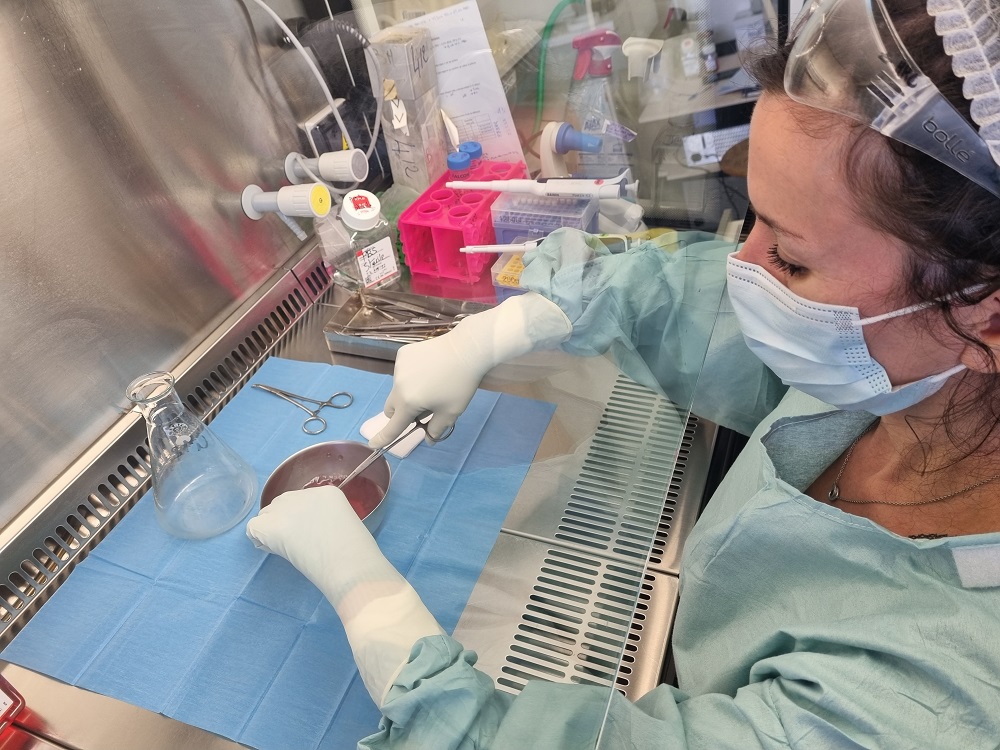Diabetes is defined as too high a level of glucose (sugar) in the blood. Blood sugar levels are normally controlled byinsulin, a hormone secreted by the pancreas. In healthy individuals, insulin helps sugar to be absorbed by the cells for subsequent use as a source of energy. What advances have been made in diabetes treatment?

Key diabetes figures
of French people affected in 2021
cases worldwide in 2017
estimated cases in 2045
deaths attributed to type 2 diabetes in 2017
in public health expenditure related to type 2 diabetes in 2017
Average age at peak incidence
What are the symptoms of diabetes?
Diabetes develops silently over many years and remains asymptomatic for a long time. For these reasons, diabetes is most often diagnosed during a blood test for another pathology. The symptoms that may appear (apart from those specific to the complications of diabetes) are not very specific:
- Feelings of hunger and thirst
- Fatigue
- Frequent need to urinate
- Dry skin
- Itching
- Blurred vision


Causes and risk factors
There are two types of diabetes with different causes and management:
- Type 1 diabetes occurs in young people, often in childhood, and is caused by autoimmune destruction of the pancreatic islets, which no longer secrete insulin.
- Type 2 diabetes (90% of cases) occurs later, in adulthood, and is linked to insulin resistance (liver, muscle and fat cells are less sensitive to the action of insulin; the result is increased blood glucose levels and insulin secretion by the pancreas – hyperinsulinaemia, until the pancreatic cells are exhausted).
The main risk factors for type 2 diabetes are lifestyle-related : eating too much fat and sugar, a sedentary lifestyle, obesity. Other factors that may come into play are certain medications (e.g. neuroleptics) or unbalanced intestinal flora (microbiota).
Course and consequences
The chronic complications of diabetes occur over the long term, generally after 10 to 15 years, and are essentially linked to multi-organ atherosclerosis:
- Stroke: cerebrovascular accident
- Myocardial infarction: every year, 1,000 people die among the 10,000 diabetics hospitalised for a myocardial infarction
- Amputations of the lower limbs – arteriopathy: every year 9,000 diabetics are amputated
- Dialysis – nephropathy: every year, 3,000 diabetics undergo dialysis or kidney transplants
Other complications linked to diabetes are
- Ocular – diabetic retinopathy
- Peripheral nerves – neuropathy
- Hepatic – diabetes is an independent risk factor for the accumulation of fat in the liver (fatty liver disease or FLD) and for liver cancer.


How is diabetes treated?
Healthy lifestyle measures play a major role in the management of diabetes, and include :
- A balanced diet,
- Increasing physical activity,
- Losing weight.
The main drugs used to treat diabetes are :
- Metformin, hypoglycaemic sulphonamides to stimulate insulin secretion,
- DDP4 inhibitors, which block the breakdown of GLP1,
- SGTL2, or iSGTL2, which inhibit glucose reabsorption in the kidney.
Glucagon-like peptide-1 (GLP1) receptor agonists are now widely used and act by several mechanisms. They slow gastric emptying, restrict appetite and stimulate insulin secretion, but only when blood glucose levels rise (thus avoiding the risk of hypoglycaemia).
Research into diabetes treatment
Research into the molecular basis of diabetes, with a view to improving the management of diabetic patients, goes back a long way and is still extremely active. It has led to considerable progress in understanding and treating this condition, so much so that today diabetes is more a condition than a disease.

The ICAN IHU mission
At the ICAN IHU, research into diabetes encompasses everything from the most fundamental aspects to helping patients in their day-to-day lives. Our teams are looking at the links between diabetes and other metabolic diseases, such as non-alcoholic fatty liver disease (NAFLD), with some original avenues of research: the role of cell membrane lipids (sphingolipids) or certain liver cells involved in inflammation.
Our teams are working in particular on :
- The relationship between ageing adipose tissue and insulin resistance, a true pre-diabetic state,
- The impact on insulin resistance of bariatric surgery, which aims to reduce body fat,
- The impact of diabetes on heart disease, particularly heart failure, by studying the beneficial effects of new anti-diabetic drugs on the heart,
- Innovative management of diabetic feet, to reduce the number of amputations caused by foot sores.








